The Celebrant Foundation & Institute, a nonprofit educational organization that trains Life Cycle Celebrants, is changing the way we think about ceremonies. In particular, end-of-life celebrations are transcending the traditional funeral idea, with people opting for the personalized, meaningful ceremonies that celebrants offer. We spoke with the Celebrant Foundation & Institute’s International Director, Charlotte Eulette, and Board Member and Funeral Committee Chair, Dorry Bless, about the work of a Life Cycle Celebrant.
Liz: For our readers who aren’t familiar with the term, what is a celebrant?
Charlotte: A celebrant is an officially-trained person, or a ceremony expert, that creates personalized ceremonies for individuals. We are called certified Life Cycle Celebrants. We create womb-to-tomb, rite of passage ceremonies.
Dorry: That includes all life cycle ceremonies, from baby blessings to welcomings to namings, adoption ceremonies, coming of age ceremonies, elder ceremonies, retirement ceremonies, milestones, birthdays, anniversaries, vow renewals, weddings, celebrations of life, funerals, memorials. We are trained to reflect the values of their client. We take each experience without judgment or agenda. We sit with each client and interview them and look at what they are looking to achieve with the ceremony and what tone is important to them.
The celebrant believes that it’s in the personal story where the meaning and the goal lies. We use their story within the ceremony. But a celebrant ceremony also has a lot of nuances and subtleties that really include the community, the family and friends that have gathered there. They are a part of what’s happening, not just passive witnesses. That doesn’t mean they’re speaking, or jumping up and down, but their presence is attended to in a nuanced kind of way—in the way the celebrant stands, or in the way the room is set up. All of those aspects are taken into consideration.
Our ceremonies really run the gamut of where they can be held. They can be in a park or in a funeral home or in an individual’s home or at the beach. That’s part of how they achieve their very personalized touch; also, in our meetings with our clients, where we learn about their story, talk about traditions and rituals that might have existed in their families, the faith they were brought up in, the faith they identify with or practice at this point in time, and we include those. And they get to see every word beforehand. There isn’t a surprise the day of the ceremony: “Is the celebrant going to know my name and how to pronounce it? Will they know anything about me?” We work very closely with them. We easily spend 15 to 20 hours with them.
Liz: Tell us about the Celebrant Foundation & Institute, your organization.
Charlotte: What the Celebrant Foundation does: we are the premiere organization in North America that trains or teaches and certifies people to become Life Cycle Celebrants in one of three certifications, or all three: Funerals, Healing and Transition; Family and Children Ceremonies; and Weddings and Ceremonies for Couples.
People come and take our course, which is an online live course with a teacher and seven or eight students—we only accept 100 students a year. The classes are one hour a week, with four hours of homework. It’s a Jungian-based course, and it’s not just theory; we teach celebrants how to actively listen, how to interview and find out the client’s story, and how to write the ceremony in a specific way.
We study the art of writing a ceremony according to certain authorities in the field over the last 150 years. Then we learn how to officiate and how to use our voices, whether you’re doing a ceremony that requires you to be solemn, or happy, or that need you to speak slower and louder for children or elderly people—all of those kinds of things. And then, we teach celebrants how to have their own practice, whether they’re doing one ceremony or are a full-time celebrant.
And after they graduate, we don’t just throw them to the wind. We have a community of celebrants, an association where we refresh, refuel, and nurture them. We help them with every aspect of their vocation: marketing, PR, building a chapter. We create other kinds of ceremonies together as a collective; for example, we have a ceremony project called the Tree-bute Project, where communities get together and honor the fact that they’ve lost trees in their community. Our school is not just a school; it’s sort of a celebrant movement.
Liz: In what ways is Life Cycle Celebrant end-of-life ceremony special and different from a traditional event?
Dorry: I think that first of all, most importantly, it’s the story. It’s the individual story. The loved one is not getting plugged into a template. The celebrant is spending time with family and friends to learn about the loved one. And that might be followed up afterwards by phone calls to more family members, more friends, to get different aspects of the story.
The celebrant often spends time looking at pictures, video, possibly meeting in the loved one’s home, so they really get a sense of who this person was. And then they talk with the family about aspects that would be meaningful. Perhaps the loved one didn’t make it clear what they wished for, so with the family the celebrant thinks about what the loved one would want, and what the family wants: blessings, readings, music.
For example, I did a service a few weeks ago for a 60-year-old man who died from a rare form of Parkinson’s disease. He was an environmental engineer and was involved in the 9/11 clean-up, so it’s possible he got sick from that. The music at his funeral was Jimi Hendrix’s “All Along the Watchtower,” Led Zeppelin, and a Santana song. That music and where it was placed in the ceremony created a ceremonial space in such a way that people felt welcomed into the purpose of why we were all there, which was to celebrate and honor Joe’s life.
And the younger people there, the teenagers, commented afterwards how surprised they were by the ceremony in a positive way. That it wasn’t mournful or depressing, that it felt real: they could relate to the ceremony. In a sense, they felt closer to Joe and really appreciated that his story was told. So my point here being, it can be something as simple as music—practically everyone has an iPod these days, so whether the ceremony is at a funeral home or outside at a park, music can be added.

In the age of the iPod, it’s easy to add personalized music to your ceremony. (Photo credit: Wikimedia)
There can also be personalized rituals. One of our celebrants in Indiana told the story of an elderly man who was remembered by his children in a very warm way: He gave them an allowance until they were 22, and it was a quarter every week in an envelope. It didn’t matter how old they got, they got that quarter. So the celebrant suggested that each (grown) child come up and put a quarter in an envelope and put it in with their dad. And though that sounds like a whimsical, lighthearted ritual, they all commented afterward how meaningful and poignant and tender that was to them. They really learned about the value of money from their dad, and to be able to pay tribute in this way was important to them, because sometimes words can’t express what we want to say.
Other celebrants have done special ceremonies in the Jewish style, where at the graveside it’s a sign of love for the family and mourners to throw dirt on the grave. But one family felt that was harsh with young children around, so instead the celebrants suggested chocolate kisses. Grandma liked chocolate kisses, and it was an easier way for the kids to say goodbye but still pay tribute to this tradition. So anything can be personalized, ritualized—it can be something like growing a garden.
One of Tony’s schoolmates said, “As I grow older, this is a moment I will remember for the rest of my life: that he will not be forgotten, and that people are not forgotten.” He hit the mark.
Charlotte: There was a celebrant who did a ceremony for a young boy who died in a motorcycle accident. What they did was they created Miles’ Memorial Garden, where the family came and tended to the garden. Also, Miles loved music, so they got the local radio station to play his favorite songs. Exactly like Dorry said, the celebrant made that happen. And now it’s a ritual: every season they tend to the garden, and it keeps growing and continues to touch everybody’s life.
Also, we had a young boy here in Montclair that died saving a little girl’s life, stopping her from crossing the tracks. The family could not deal the first year. Around the second year, they employed a local artist to commemorate a bench and the celebrant worked with the artist. He covered it with blue sand from the Aegean Sea—the family was of Greek heritage—and students and people came and put wishes into the bench before they put the sand on there to solidify.
The bench is across from the high school, and the celebrant mentioned in her presentation that even though Tony’s not alive, all of these moments of people sitting on the bench, having their first kiss, waiting for a test score, all these memories will live on in other people and his bench will be a part of student life. One of Tony’s schoolmates said, “As I grow older, this is a moment I will remember for the rest of my life: that he will not be forgotten, and that people are not forgotten.” He hit the mark, and it made a definite impression upon him.
Another story: a man in Chicago had died eight years before, but his wife wanted to do a ceremony for him now because when he died, he had died so quickly that no one could mourn. So we took eight people in his life that represented who he was. One was an 80-year-old friend that he went to school with, who painted a picture of his boyhood. This friend actually dated his wife, while he dated another girl, and they ended up switching and marrying the other woman! So that story was told.
Later in life, the man had worked as a politician in Chicago, so a representative spoke about that. He had a very rare disease that took his life, so his doctor came up and spoke about him. Some of his best friends, his sons, his grandsons, his wife. His grandsons came up last. We knew we hit the mark because, from his place at the end of the room, the bartender said, “Excuse me, everybody; let’s raise a glass to this man, because you definitely brought him into the house. I feel like he’s right here with us, and not to raise a glass would be to do a disservice.”
Then we also do specific ceremonies for traumatic deaths like suicide. For example, a living funeral: there was a woman in her 80s who decided she didn’t want to live anymore. So everybody brought potluck, and she made sure she was able to introduce people she knew who had things in common: “Steve, you’re a writer for an arts magazine, and Cara, you’re a ballet dancer; Steve, you should cover her performances!” She was still sharp as a tack.
It was amazing. We were all also able to give her gifts, whatever skill set we had: one woman danced ballet, another played the harp, another guy made a wonderful cake, which everybody cut and then gave her a piece. All of these symbolic things where people were all invited to participate. That’s the thing that we do: work with the families and loved ones to create a ceremony that really rings true. We’re simply the vessels; it has nothing to do with us. It’s a great honor.
Liz: What religious and cultural backgrounds do your clients come from?
Dorry: It runs the gamut. All socioeconomic classes. We have celebrants who are bilingual, so some ceremonies are bilingual or multilingual. We have interfaith families, secular, agnostic, atheist. Our celebrants also run the gamut, from bachelor of arts—most are college-educated but not all—to masters, PhDs. Celebrants who were school principals, massage therapists, attorneys, special event planners, professional storytellers, theater actors, directors, playwrights. We even had a truck driver.
Charlotte: Librarians are big!
Dorry: So our celebrants run the gamut. The youngest, I think, is 27, and the oldest mid-80s. And as I said, our clients also run the gamut, in terms of who we serve and who is inclined to contact the celebrant. It’s typically someone who really wants to get involved in the ceremony: sometimes their faith tradition does not allow that, sometimes they’re no longer affiliated with their faith, sometimes they’re interfaith, agnostic, or atheist. Perhaps they’re spiritual but not affiliated. So we get really a very broad base in both who the celebrant is and who the client is.
Charlotte: There are a few studies we’ve looked at that have statistics on the face of the new American family. A lot of people are spiritual, but not religious. They like to bring cultural traditions into the ceremony, but may not be inclined to bring in all the religious aspects.
Dorry: There was a new millennial survey by Georgetown University last year that shows that, of the millennial generation, a quarter now do not identify with a religious faith. And that’s growing.
Liz: Would you say this new spirituality, or whatever you want to call it, is a factor in the rise of the celebrant movement?
Dorry: I think that has some bearing on it. There are plenty of ceremonies we do where people would identify or consider themselves a certain faith. I actually did a funeral for a lay minister, whose father was a minister, and his grandfather was a minister, all in the Catholic faith. This man was in his 80s and he sang every week in the choir, as did his three sons. Yet I had done a funeral for his granddaughter a few years prior, and apparently he was so taken by it that on his deathbed he decided not to have ministers of his church, and instead wanted a celebrant ceremony.
It’s the same with weddings. Time and again, couples are interfaith, or perhaps the bride’s parents might be Christian and very involved in the church but their daughter does not subscribe to it the same way her parents do. And her fiancé chooses a celebrant, and the parents are okay with that. I think sometimes that’s the biggest surprise: people come up to us all the time explaining how meaningful it was. I live in a small community in New Jersey, a lot of seniors and church-going folk; but when I started doing funerals here in my town, I was surprised that they wanted it, and the biggest surprise was the reaction from seniors about how moved they were by the ceremony. I think that’s because it was personal.
Charlotte: I think the reason is, these people get what ritual is, so when they see it done well, they acknowledge it. At a wedding a couple weeks ago, when I said I was the celebrant, a gentleman looked at me and said, “You are going to be doing it?” He was the grandpa, picking up the tab, and he just shook his head. Well, in the ceremony, we honored the groom’s father who had died the year before of cancer by having a moment of silence; we talked about how Nick would have loved to have been there and had the dance with his daughter-in-law. (A lot of weddings do have funeral aspects to them.) The gentleman who had shaken his head was this man’s dad, the grandfather of the groom. So he came up to me afterward and said, “I’m so sorry; that was the most moving spiritual ceremony I’ve ever been to, and I’m humbled by it. I thank you. How can I become a celebrant? Am I too old?”
These things happen. It’s universal. Once there’s a ceremony that’s really authentic and rings a chord with people, no matter where you’re from, it stops you in your tracks. You see that this is very much honoring these people’s lives. We even have priests from church call us and say, “We can’t do a ceremony for these people–” maybe because they’re interfaith or same-gender–“maybe you can help them with this ceremony.” So we come to the rescue.
That’s a big component of celebrant ceremonies: connection. The ceremony is designed to connect the community… It’s really an invitation to all to stop, not fit any prescribed rules, and just allow themselves to be human at that moment in time.
Dorry: That’s a big component of celebrant ceremonies: connection. The ceremony is designed to connect the community, connect them with the story. The baby that’s getting welcomed, the couple that’s getting married, the person who just died. The connection comes from telling the story. The age-old human connection is storytelling, and remembering the ancestors. That can happen in every ceremony, not just a funeral. It’s really welcoming people who have gathered to participate and witness the ceremony by letting them know their presence is essential to what is happening at the moment. It’s really an invitation to all to stop, not fit any prescribed rules, and just allow themselves to be human at that moment in time.
Liz: Any words of advice you can leave our SevenPonds readers with regarding planning and personalizing an end-of-life ceremony?
Charlotte: Well, they can definitely go to our website and choose a celebrant in their region. There are photos and bios, and when they click on them they can talk to the celebrant.
Dorry: SevenPonds actually did an interview with one of our home funeral specialists in the past, so we have a few of those for interested clients.
Charlotte: It’s important to talk to more than one to see who rings true for you, and to know that you have an opportunity to honor your loved one’s life in a way that you see fit. People sometimes forget. They think they don’t have a choice.
Also, they might think that things happen too quickly when they’re planning. You can always plan a memorial with the celebrant as well; it doesn’t only have to be a funeral. There might be other things you want to do: interment of ashes, scattering of ashes, mingling ashes with Mom and Dad, green burial. Those are things that are important for people to realize: Yes, they can do it! A celebrant is there to help them and guide them. We are a nonprofit, educational organization and they can feel free to call us. We will be a loving and warm heart to them.
Dorry: I would really agree with what Charlotte said. If there’s a celebrant in their community, take the time or moment to make the call and see if that’s the right fit for them. A celebrant ceremony might offer for them what they really need during a transitional time: being deeply listened to, telling the story of the loved one, having it told to their friends and family in the ceremony, being able to be as intimately involved as they choose. Sometimes, really giving people a purpose during those first few days after their loved one has died is important: collecting things that are meaningful and important, whether it’s hiking shoes or pictures.
I did a ceremony for a woman who died in her 80s and we made a picture board of every animal she owned. There were 30 animals up there. It really felt like they were present, and that was a part of who she was and what was important to her. It can be so encouraging and guiding to a family or individual to put those things together. They might be overwhelmed with forms and death certificates and insurance and meeting with the funeral home, if they’re going that route, so being able to exercise a different part of their heart and brain is great.
We don’t look at it as closing, rather as creating, opening a window in their life that is going to be different. It’s a life transition. From this point on, being able to ease into that in a way that supports them is what we hope to offer.
Charlotte: What we’re really saying, if we have one message, is it’s not about closing. Instead of closure, let’s have opening!
Dorry: Yes; instead of saying you have to get to the end of the road, we say let’s nourish where you are now.
Liz: That’s a great way of looking at it. Thanks so much for speaking with us, Dorry and Charlotte!

 What is a Celebrant? An Interview with Charlotte Eulette and Dorry Bless
What is a Celebrant? An Interview with Charlotte Eulette and Dorry Bless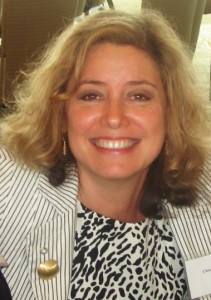
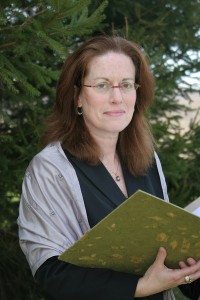
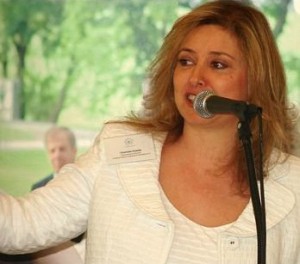
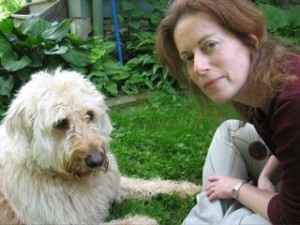
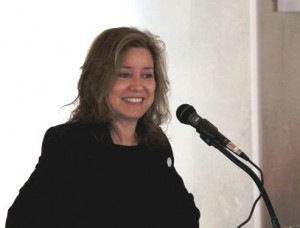
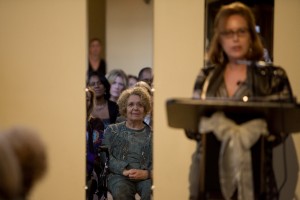



 “Hand to Earth” by Andy Goldsworthy
“Hand to Earth” by Andy Goldsworthy
 Trans Remembrance Project Provides a Community of Grieving
Trans Remembrance Project Provides a Community of Grieving
 Caring for a Dying Loved One? Be Gentle With Yourself.
Caring for a Dying Loved One? Be Gentle With Yourself.














